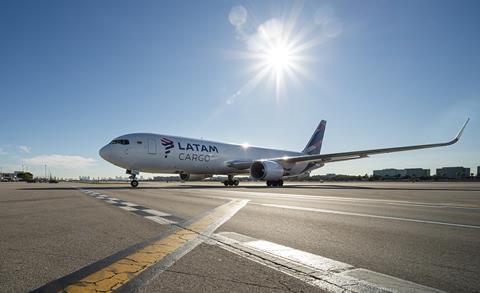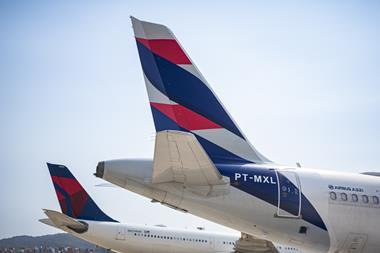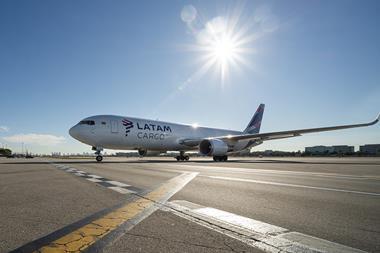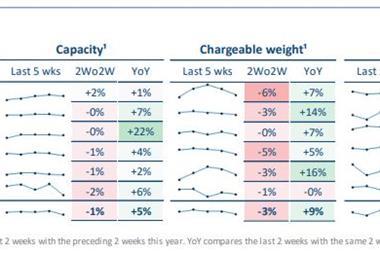
LATAM Cargo has added another Boeing 767 freighter to its fleet as part of its fleet renewal plans.
The carrier said that the additional 767 Boeing Converted Freighter (BCF) brings its fleet of all-cargo aircraft to 21.
The new aircraft is the youngest in its cargo fleet at just 11 years old.
Explaining the addition of a new freighter, Gudny Genskowsky, senior vice president of cargo network and alliances at LATAM, said: “Adding a new Boeing 767 BCF to the fleet, in line with our strategy to renew the fleet with younger and more efficient aircraft, will allow us to improve operational efficiency, reduce costs, and continue offering a more reliable and sustainable service to our customers.”
According to fleet tracking website Planespotters, the carrier currently has five 767 freighters that are more than 20 years old, with the oldest having been completed more than 25 years ago.
The carrier will presumably begin to look to retire some of these older freighters in the coming years given its fleet renewal strategy.
The addition comes as the market out of Latin America has been suffering from overcapacity since the re-introduction of belly capacity since the end of the Covid pandemic.
This has seen Air France KLM Martinair Cargo and Qatar Cargo move capacity out of the region and onto higher paying services from Asia.
In response, LATAM Cargo last week announced the addition of new frequencies into Europe, which will help maintain Qatar Cargo’s connectivity to the region as the two airlines have a partnership.
LATAM Cargo said that with 21 Boeing 767 freighters, it offers the most extensive cargo operation in the region, connecting 166 destinations in 33 countries, 18 of which are exclusively for cargo.
The carrier announced plans in 2021 to add eight passenger-to-cargo converted aircraft and increase cargo capacity by over 70% compared to pre-pandemic levels.https://www.aircargonews.net/1072523.article


















